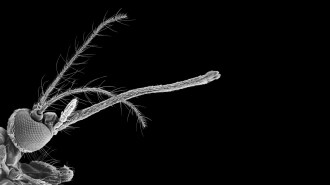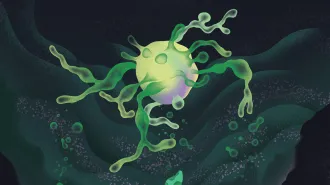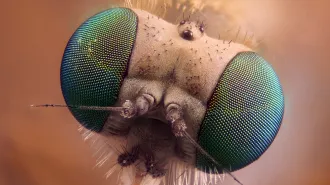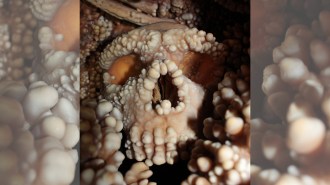Why some people may be more susceptible to deadly C. difficile infections
In mice, disturbances in the mix of gut microbes set the stage for the pathogen to flourish

OPPORTUNITY KNOCKS A bacterium called Clostridioides difficile (illustrated) that causes severe diarrhea takes advantage when antibiotics or other factors disrupt the normal mix of microbes in the gut.
Dr_Microbe/Istock.com







